|
Star-Chamber Cases (1630)
This small book published in 1630 derives from Richard Crompton's larger work, L'Authoritie et Iurisdiction des Courts de la Maiestie de la Roygne which first appeared in 1594. Approaching the Star-Chamber from a strictly legal point of view, Crompton (c. 1529–c. 1599) details the statutes which affected the court and the types of cases that typically came before it. His sources included the entire gamut of legal publications, including statutes, law reports, and chronicles, sprinkled with his own observations.
|
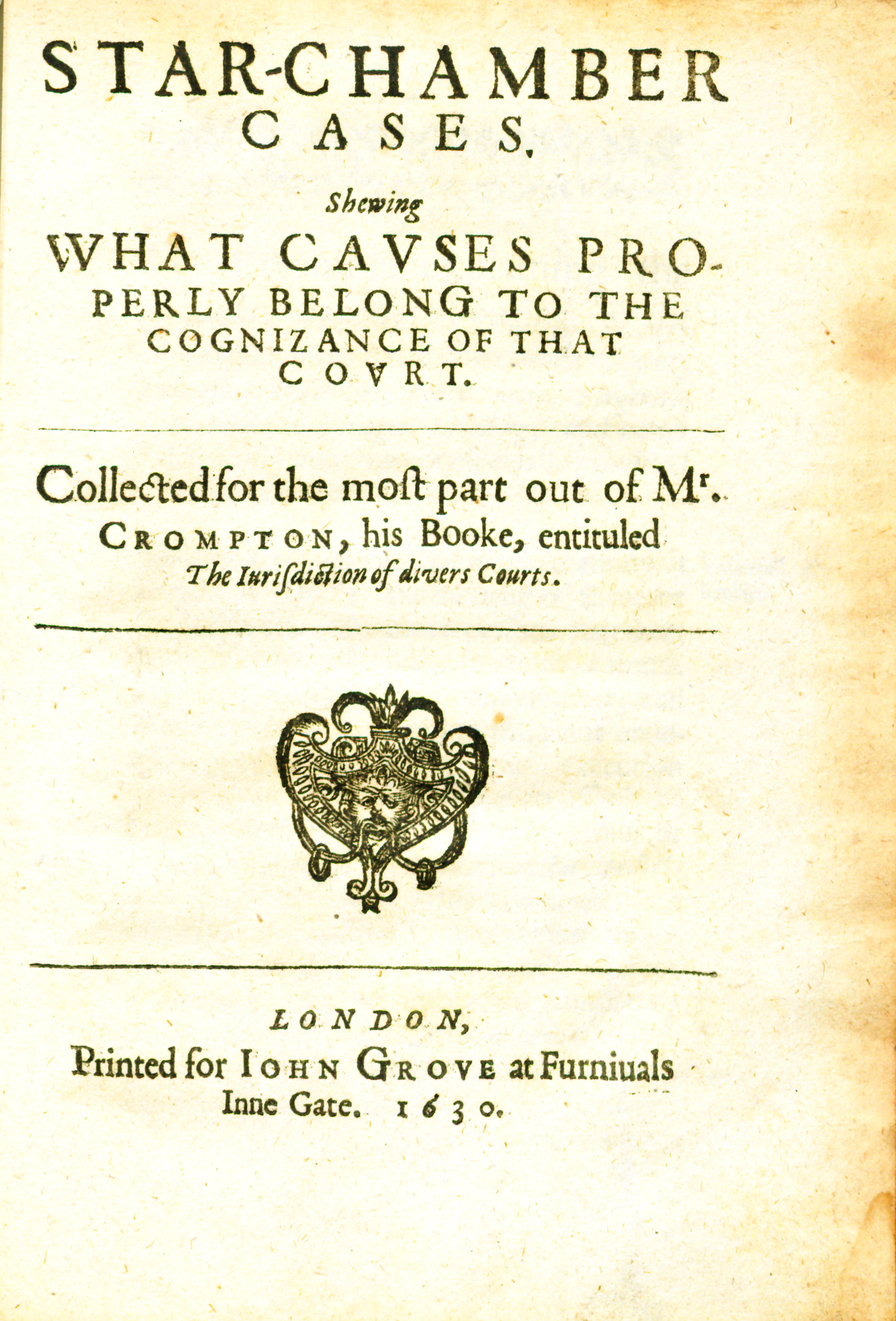
|
Crompton, Richard. Star-Chamber Cases, Shewing What Causes Properly Belong to the Cognizance of that Court. 1st ed. London: Printed for John Grove, 1630.
|
|
|
The Mirrour of Justices (1646)
Most likely originally composed in the thirteenth century, this work attributed to Andrew Horn (c.1275–1328), enjoyed a revival of interest in the sixteenth century. Sir Edward Coke (1552–1634) read the book as a trusted authority on English law and included its precepts in his Institutes. Other authors, trusting Coke, perpetuated a lofty reputation. Later scholarship has revealed the dubious nature of that description and recognizes the work as farce. The first edition in law French appeared in 1642, the first English edition arrived in 1646.
|
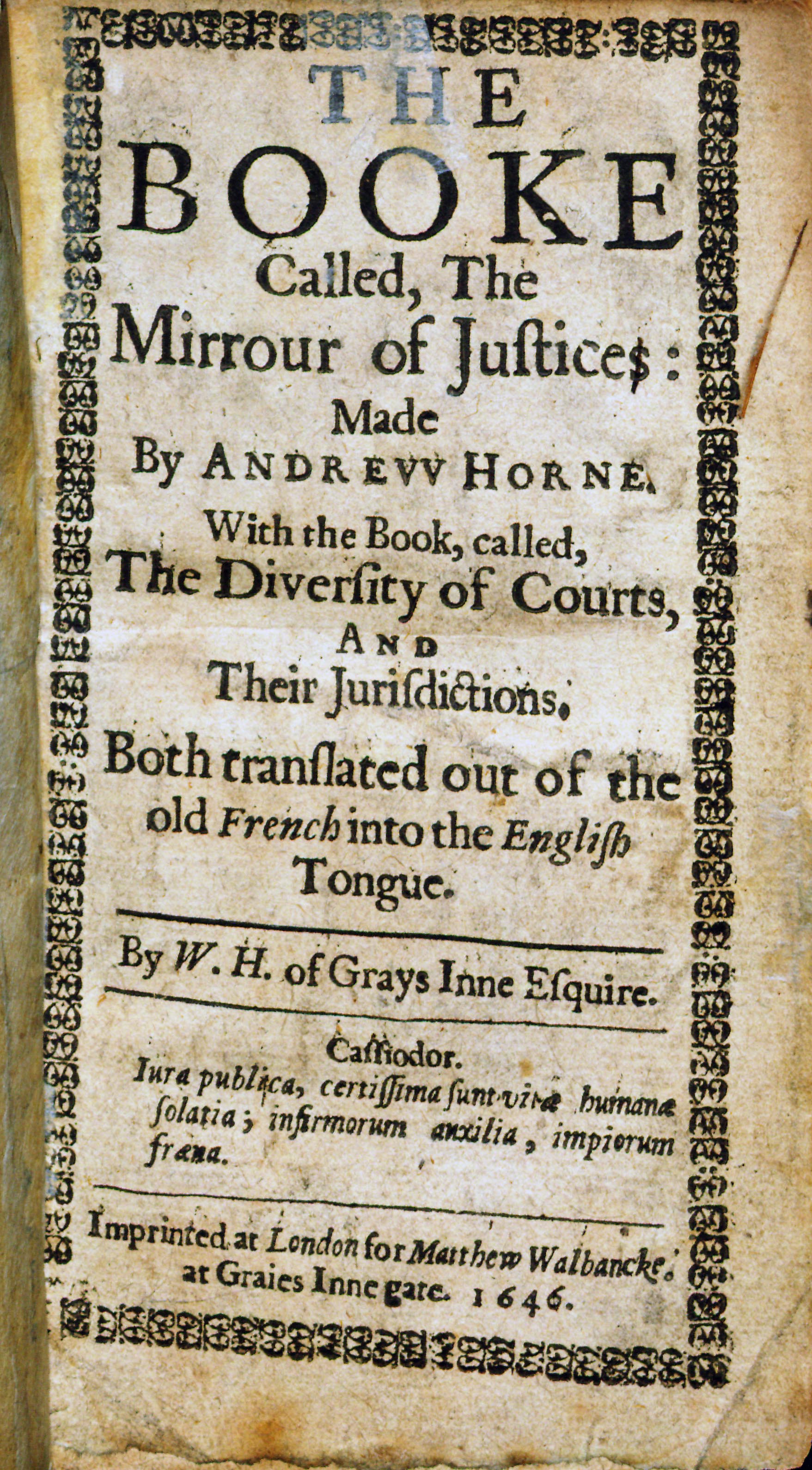
|
Horne, Andrew. The Book Called, the Mirrour of Justices: Made by Andrew Horne with the Book, called, the Diversity of Courts and Their Jurisdictions. Translated by William Hughes. 1st English ed. London: Imprinted for Matthew Walbancke, 1646.
|
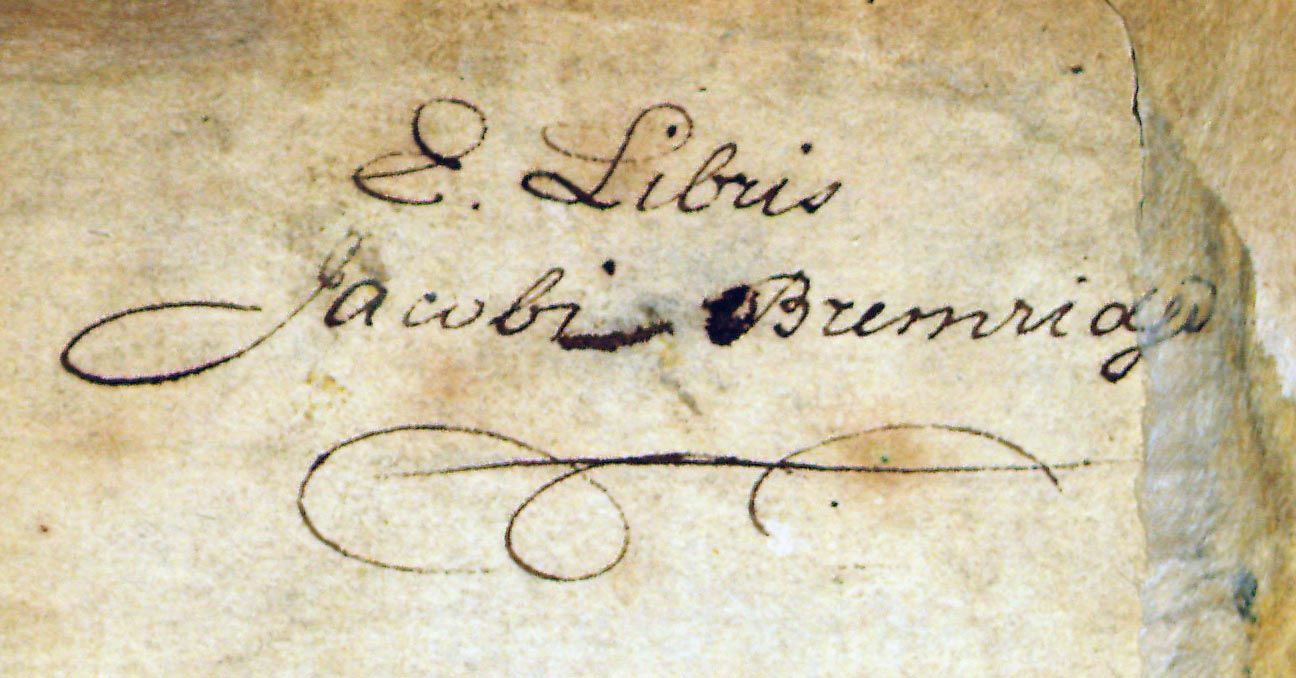
|
Signature of Jacob Bremridge, in Andrew Horne's Mirrour of Justices, 1646.
|
|
|
The Attornies Almanacke (1627)
Thomas Powell (d. c.1635) composed this slim, practical work to provide "the manner of direction of any wryt, for remouving of any body or cause or certifying of any record, etc. to any [of] the greater courts at Westminster from other inferiour courts." Only one edition was published, but the tract was often presented with Powell's longer work, The Attourney's Academy (1623). This copy is signed by an early twentieth century owner.
|
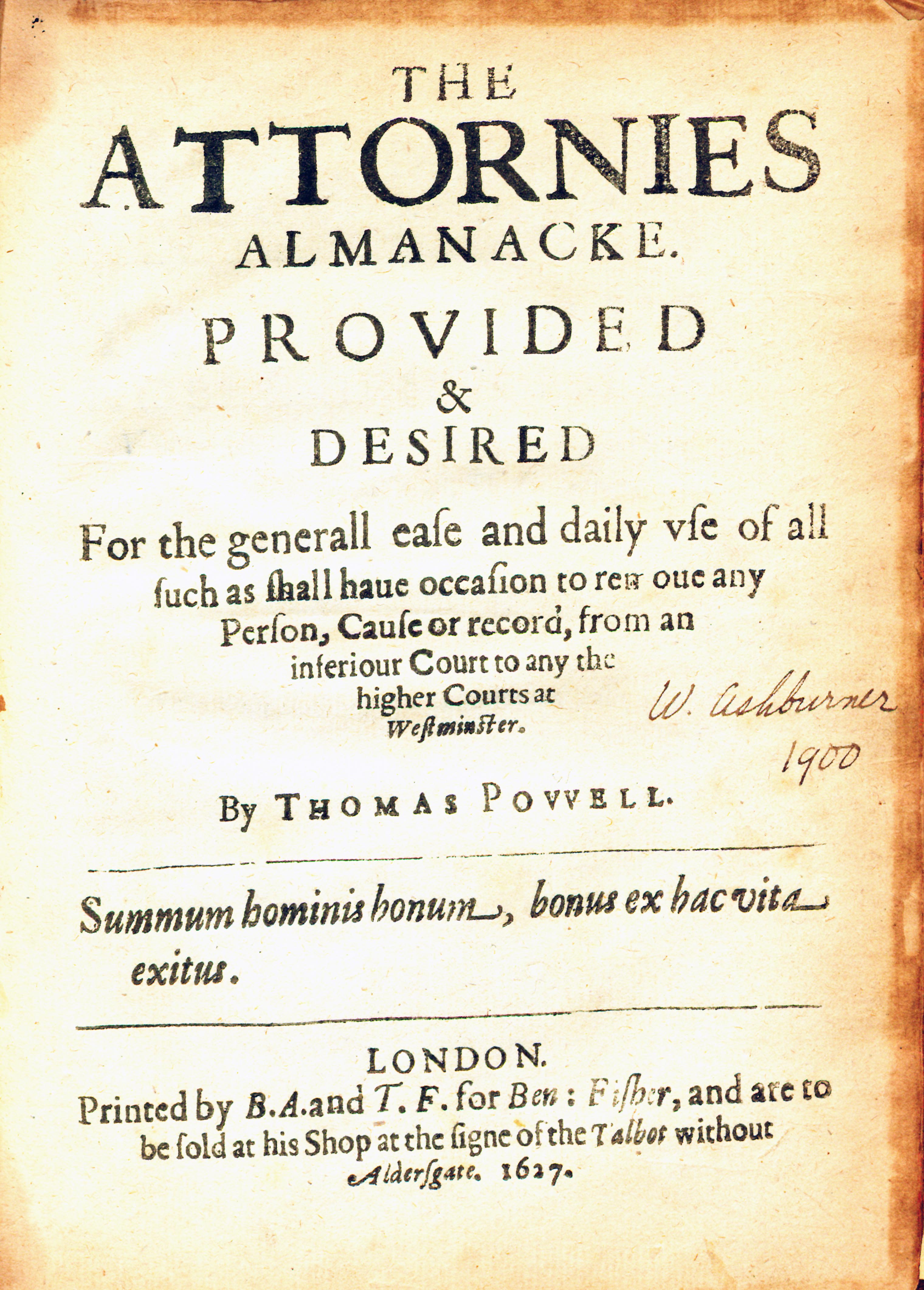
|
Powell, Thomas. The Attornies Almanacke, Provided & Desired for the Generall Ease of Daily Use of All Such as Shall Have Occasion to Remove any Person, Cause or Record, From an Inferiour Court to Any the Higher Courts at Westminster. London: Printed by B.A. and T.F. for Ben Fisher, 1627.
|
|
|
Brief Animadversions (1669)
William Prynne (1600–1669) wrote this commentary on Sir Edward Coke's (1552–1634) Fourth Institute prompted by political considerations and a desire to highlight the questionable reliability of Coke's work on the jurisdiction of the courts. Through his efforts as keeper of records under Charles II, Prynne rescued a wealth of decaying documents and identified multiple records which contradicted the theories of previous writers. It was Coke's blind trust of earlier commentators without reference to primary sources that led to Prynne's criticism.
|
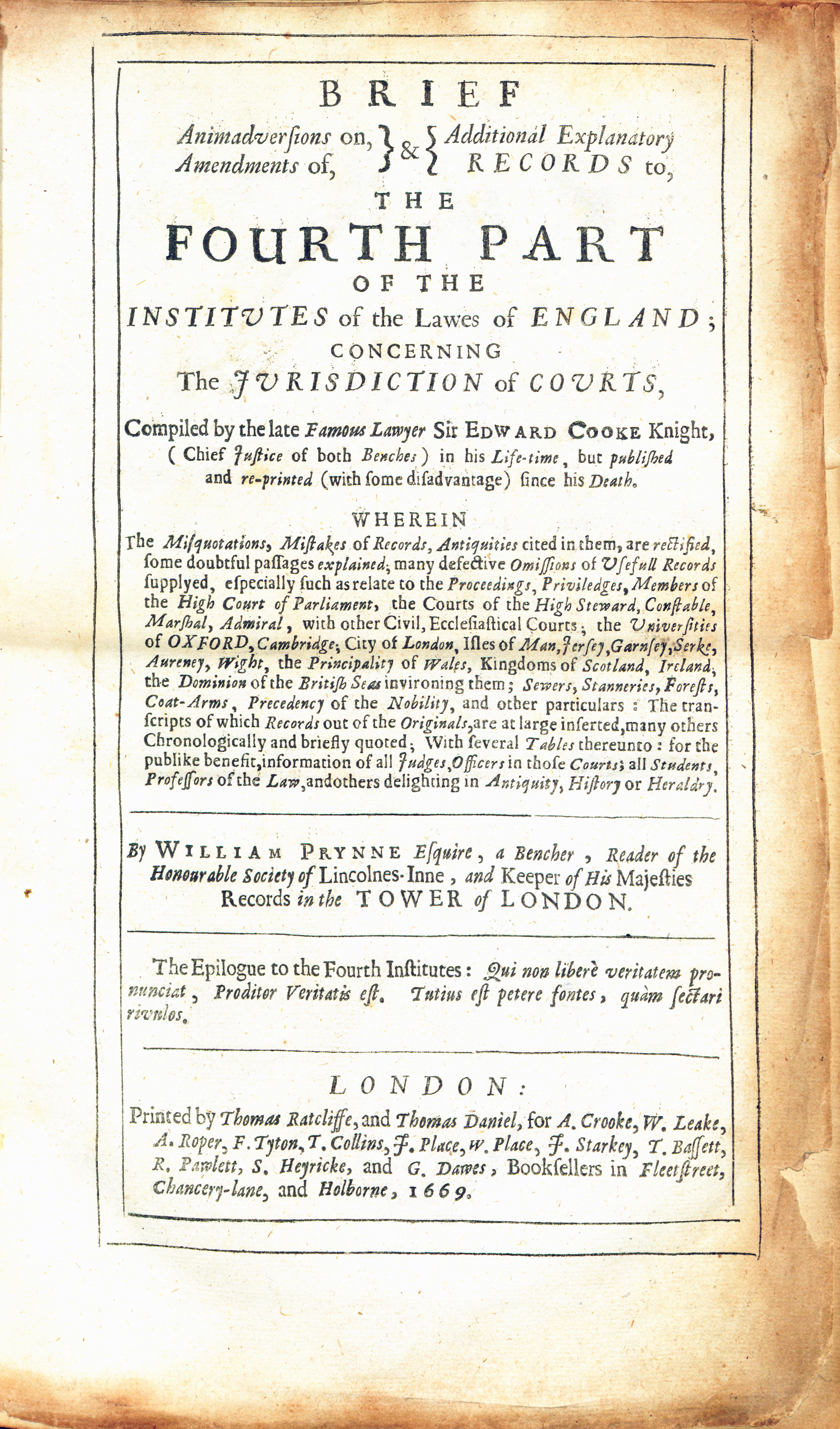
|
Prynne, William. Brief Animadversions on, Amendments of & Additional Explanatory Records to the Fourth Part of the Institutes of the Lawes of England, Concerning the Jurisdiction of Courts. London: Printed by Thomas Ratcliffe, and Thomas Daniel for A. Crooke, W. Leake, etc., 1669.
|